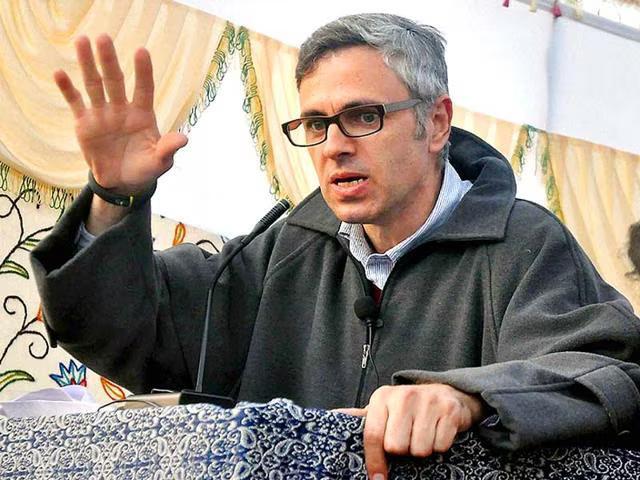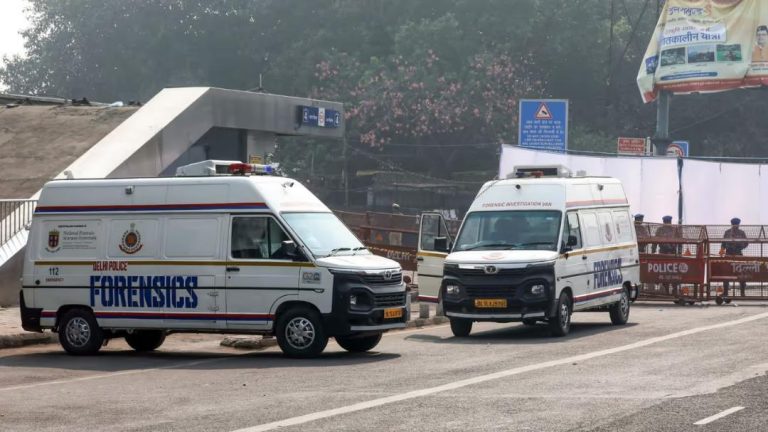
US Doesn’t Care About Any Other Country: J&K CM Omar After Trump-Pak Army Chief Lunch
The recent lunch meeting between US President Donald Trump and Pakistan Army Chief General Asim Munir has sparked a heated debate globally. While some have seen it as a significant step towards improving Indo-US relations, others have expressed concerns over the implications of the meeting on the fragile situation in Jammu and Kashmir. In the midst of this controversy, Jammu and Kashmir Chief Minister Omar Abdullah has come forward with a stinging commentary on the United States’ priorities.
In an exclusive interview, Omar Abdullah reacted to the news of Trump hosting Pakistan’s army chief for lunch, saying, “We can’t dictate to the US President whom he should invite for dinner. We used to think the US President was our close friend, and he’d respect that, but the US does what benefits them, they don’t care about any other country.” These sharp words from the J&K CM have left many wondering about the true nature of the US-Pakistan relationship and its impact on the region.
The meeting between Trump and General Munir has been seen as a significant development in the context of the ongoing tensions between India and Pakistan. The two countries have been at odds over the issue of Kashmir, with Pakistan consistently supporting separatist groups in the region. The US, too, has been a vocal critic of India’s decision to revoke Article 370, which granted special status to Jammu and Kashmir.
However, Omar Abdullah’s comments suggest that the US President’s decision to host the Pakistan Army Chief is a clear indication of the country’s priorities. According to the J&K CM, the US is more concerned with its own interests than with the well-being of other nations. This assessment is not without basis, given the US’s track record of prioritizing its own strategic interests over those of its allies.
The meeting between Trump and General Munir has also sparked concerns over the implications for peace talks between India and Pakistan. The two countries have been engaged in a fragile ceasefire along the Line of Control, and any deterioration in relations could have far-reaching consequences for regional stability.
In this context, Omar Abdullah’s comments assume significance. As the Chief Minister of Jammu and Kashmir, he has a unique perspective on the situation in the region. His views are shaped by the complexities of the Kashmir dispute and the implications of the US-Pakistan relationship on the region.
The J&K CM’s criticism of the US is not without precedent. In recent years, the country has been accused of pursuing a policy of “strategic ambiguity” towards the Kashmir dispute, refusing to take a clear stance on the issue. This lack of clarity has led to concerns over the US’s commitment to regional stability and its willingness to engage with India on the issue.
Omar Abdullah’s comments also highlight the need for India to reassess its relationship with the US. While India has traditionally seen the US as a strategic partner, the recent developments suggest that the country’s priorities may not align with India’s interests. The J&K CM’s criticism of the US is a wake-up call for India to re-evaluate its relationship with the US and to prioritize its own interests in the region.
In conclusion, Omar Abdullah’s sharp response to the meeting between Trump and General Munir highlights the complexities of the US-Pakistan relationship and its implications for regional stability. The J&K CM’s comments are a stark reminder of the need for India to reassess its relationship with the US and to prioritize its own interests in the region. As the situation in Jammu and Kashmir continues to evolve, it is essential for India to engage with the US in a manner that reflects its own priorities and interests.






